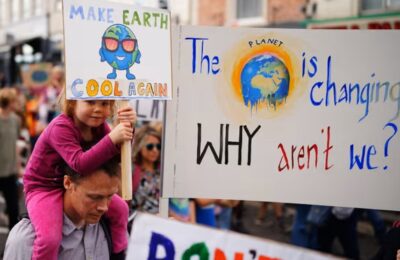Pritam Singh writes on the shift in European politics towards the green left
First published by Alternatives International

It is for the first time in global history that science is influencing political change. The science of climate change is now so well established and irrefutable that it has completely silenced the climate change deniers and even multinational corporations which are the major contributors to environmental destruction and climate change are now attempting to reset their business strategies towards sustainability in one form or another. That the science of climate change is making its political impact most clearly in Europe is not surprising as this is the most literate continent of the world.
The latest report of the UN Intergovernmental Panel on Climate Change that our planet is facing climate emergency along with the lived experiences of people all over the world in facing the consequences of climate catastrophe in the form of flash floods, devastating forest fires, droughts and extreme weather are drawing more and more people, especially younger generations, to the vision of green politics. Coupled with these environmental disasters are the socio-economic inequalities that has surfaced in the advanced capitalist economies due to the pro-rich neo-liberal economic policies that became hegemonic in the 1990s but suffered some jolt after the 2008 global financial crisis. These socio-economic inequalities are discrediting the neo-liberal economic policy paradigm and making socialist and social-democratic politics more meaningful and relevant. That the relatively lower income groups and ethnic minorities suffered more in deaths and sickness during the Covid-19 pandemic has further exposed the unjust implications of free market neo-liberal economic policies.
The reversal of neo-liberal policy paradigm came to global limelight with the defeat of Republican Donald Trump in US presidential election and the victory of Democrat Joe Biden who was supported by environmental and left tendencies led by Bernie Sanders. It is now in Europe and to a considerable extent in Latin America especially in Peru recently and in Argentina, Mexico, Bolivia and Venezuela earlier, the upsurge of green and left politics is most visible.
This change has now taken place most recently in Germany, the largest and economically the most powerful country in Europe. After the 16-year rule of the right wing Christian Democratic Union (CDU) led by Angela Merkel in coalition with its sister party Christian Social Union (CSU) in the Bavarian region, the recent election results indicate that Germany will now be ruled by a Red Green coalition led by the Social Democratic Party (SDP) in alliance with the Green Party and possibly with the pro-market Free Democrats and the Marxist left Die Link. Three most interesting aspects of this election outcome are: one, the Green Party emerged as the third largest party after SDP and CDU; two, it polled the highest vote ever (14.8%), and third, it attracted the highest vote share of the young voters (below the age of 30). According to the exit poll from Forschungsgruppe Wahlen, Green Party received the most votes of the young (22% which is an increase of 11% from the last time in 2017) followed by Free Democrats (20%, increase of 7%), SPD (17%, decrease of 2%), CDU/CSU (11%, decrease of 13%), anti-immigration AfD (Alternative for Germany) (8%, decrease of 3%) and Die Link (8, decrease of 3%).
The devastating floods in July and the UN climate change report raised the environment issue as a lead issue during the elections. The environment being central to Green Party politics raised the electoral profile and prospects of the Party. Encouraged by this trend in the national mood, the Green Party decided for the first time to put up a candidate (Annalena Baerbock) for the election to the post of Chancellor, the highest political office in Germany. In the earlier phase of the election campaign, the opinion polls showed the Green Party as the most likely winner of the race for the office for Chancellor but subsequently, the traditional and better resourced parties (CDU and SPD) overtook this earlier Green lead. However, this left a mark on the national consciousness that Green Party may one day be the ruling party. A referendum result in Berlin along with the German national election suggests the further strengthening of wide-ranging radical trends. The referendum on whether the houses of mega landlords owning more than 3,000 units be expropriated to increase the affordable housing stock won a resounding victory.
Equally significant, from the viewpoint of European political trends, is the outcome of the September elections in Norway, one of the richest countries in the world with per capita income higher than that of the USA. In Norway’s election too as in Germany, the climate worries and rising economic inequalities became the leading issues. The environmental issue had special salience in Norway because the country is the largest producer of oil in Western Europe and the future of the oil industry looks shaky as the world is increasingly becoming aware of oil, along with coal and gas, as major contributor to global heating. A loose Red-Green coalition consisting of the Labour party, Socialist Left, Centre party (the party of farmers), Red Party (Marxists) and Green Party defeated the right-wing Conservative Party. It is now for the first time after the Second World War that all the Nordic countries- Norway, Denmark, Sweden, Finland and Iceland- have left of centre governments.
In August, Scotland, the neighbour of Nordic countries, witnessed the Green Party joining the Scottish National Party led government. Both parties support the movement for independence of Scotland from the UK but Green Party joining the government has given a new meaning to the independence movement with independent Scotland being projected as heading towards a fair and sustainable country different from England which is viewed as dominated by right-wing political formations.
The developments we have examined briefly in the West with a brief mention of Latin America, suggest that environmental challenges and economic inequalities are likely to rise in importance in shaping the global political trends.
Pritam Singh is Professor Emeritus, Oxford Brookes Business School, Oxford, UK


